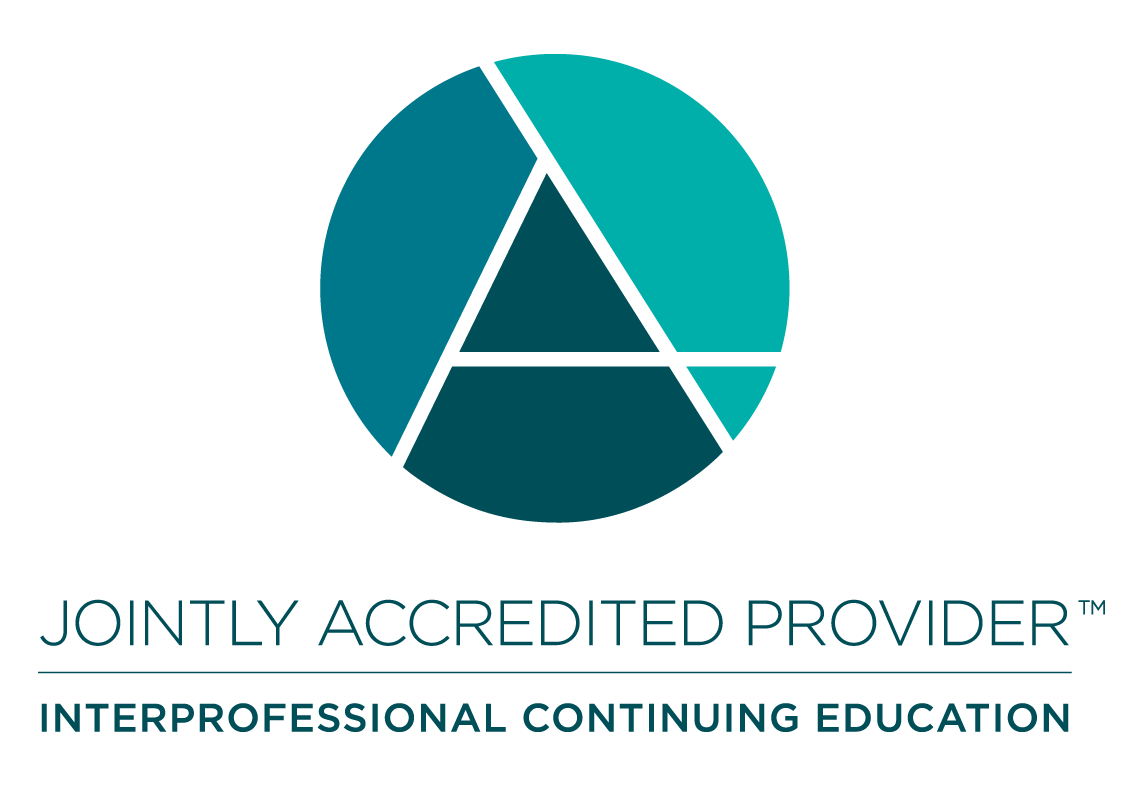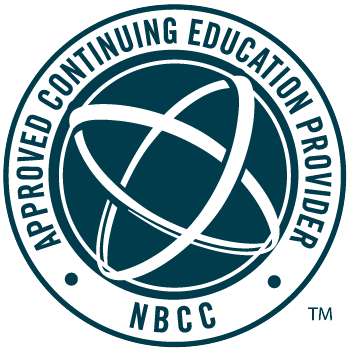
Considerations for Tapering Benzodiazepine in Primary Care - May 19, 2025
-
Register
- Non-Member - Free!
- Regular Member - Free!
- Retired - Free!
- Early Career Physician - Free!
- Resident - Free!
- Student - Free!
- Associate - Free!
- ASAM Staff - Free!
- International Member - Free!
- Emeritus Member - Free!
- Provisional Member - Free!
- Fellow Member - Free!
- Honorary Member - Free!
- CRT Member - Free!
Considerations for Tapering Benzodiazepines in Primary Care
Monday, May 19, 2025
12:00 pm - 1:00 pm ET
Overview
Elevate your skills and expertise in Benzodiazepine Tapering with our webinar series, based on Joint Clinical Practice Guideline on Benzodiazepine Tapering. Participants will learn how to determine when the risks of continued Benzodiazepine prescribing outweigh the benefits for a given patient, and how to safely taper the medication when indicated in various settings. This case-based webinar will provide healthcare professionals with essential tools and knowledge to manage benzodiazepine tapers in complex cases, including those involving opioid use disorder (OUD), illicit benzodiazepine use, co-prescribing, and protracted withdrawal. Participants will learn how to navigate challenging clinical scenarios, including cases where providers may be hesitant to continue benzodiazepine prescriptions, approaches to addressing illicit benzodiazepine use, and strategies for tapering patients maintained on buprenorphine or methadone. The webinar will also cover effective patient communication techniques, including individualized messaging and best practices for referring patients to specialists when necessary. Participants will explore evidence-based strategies for managing withdrawal symptoms, mitigating risks, and developing personalized tapering plans that consider polysubstance use, non-prescribed benzodiazepine use, and barriers to care. By the end of this webinar, participants will be better prepared to address the challenges of benzodiazepine tapering in complex clinical scenarios.
The target audience for this Introductory level webinar includes physicians, nurses, nurse practitioners, physician assistants, pharmacists and pharmacy technicians, researchers, and students.
Webinar Series Topics
- Considerations for Benzodiazepine Tapering
- Benzodiazepine Tapering for Older Adults
- Considerations for Tapering Benzodiazepines in Primary Care
- Addressing Benzodiazepine Tapering Challenges
This webinar series addresses the following ACGME Competencies: Patient Care, Medical Knowledge, Practice-Based Learning, and Improvement.
Learning Objectives
Upon completion, learners will be able to:
- Recognize the role of primary care providers in identifying patients who may benefit from benzodiazepine tapering and initiating patient-centered discussions.
- Implement practical, evidence-based strategies for tapering benzodiazepines in primary care settings.
- Address common barriers to benzodiazepine tapering in primary care settings.
Acknowledgment
The development of this Guideline was generously funded by grant U01FD007804 from the US Food and Drug Administration, the US Department of Health and Human Services. The contents are those of the authors and do not necessarily represent the official views of nor an endorsement by the FDA and Department of Health and Human Services or the US Government. The funders had no decision-making role in designing and conducting the systematic reviews, data collection, analysis, and interpretation of the data or approval privilege on the recommendations. As requested, FDA officers provided nonbinding feedback and technical support to the guideline panel and methodological team. This article was peer-reviewed before publication. These guidelines are intended to help inform clinical decision-making by prescribers and patients. They are not intended to be used for the purposes of restricting, limiting, delaying, or denying coverage for or access to a prescription issued for a legitimate medical purpose by an individual practitioner acting in the usual course of professional practice.
Registration Rates
| ASAM Learner Type | Rate |
| ASAM Member | $0 |
| Non-Member | $0 |
| Associate Member | $0 |
| Resident Member* | $0 |
| Student Member* | $0 |
*Residents, Fellows-in-training, Interns, and Students must join ASAM to receive a discounted registration rate. Click here to become an ASAM member. National and Chapter membership dues apply. There is no charge for Students to become a Member, but verification of student status is required.
Membership Question? Call ASAM at 1.301.656.3920, email us, or view the ASAM website for more information.
Refunds & Cancellations
All ASAM e-Learning Center refund requests must be made in writing to Education@ASAM.org within 90 days of purchase. Those requesting refunds for courses that are in progress will receive partial refunds or e-Learning Center credit. Automatic full refunds will be made for any course with a live-course component that has been cancelled.
Open Registration: 2/24/25 – 5/26/25
Close Access Date: 4/8/28
Instructions
- Click on the Contents tab to begin this activity.
- Click Complete Post Test to answer multiple choice questions. Participants will have 10 attempts to pass and must answer 4 out of 5 questions correctly.
- Click Complete Evaluation to provide valuable activity feedback. Scroll down on all questions as there may be answer options that expand past the size of the window.
- Click the button Claim Medical Credits in the box titled Claim Credits & Certificate. Choose the type of credit and click submit. Click the button View/Print Certificate to save or print your certificate. You can view/print your certificate at any time by visiting the ASAM e-Learning Center, clicking Dashboard, and clicking Transcript/Achievements.
- For Pharmacists ONLY: Complete the task entitled "Enter Pharmacist CPE Monitor Information (Pharmacists Only)". Pharmacists must claim credit and provide their eProfile ID and Birthdate via the Pharmacist CPE Monitor Information survey within 30 days of completing the activity. ASAM will not report CPE Credits claimed 30+ days after activity completion to ACPE. ASAM will not report CPE Credits without accurate and complete information. Courses offering CPE Credit will indicate the amount of credit available for pharmacists on the Credits & Disclosure Tab.
Need Assistance?
For assistance logging in, accessing activities, claiming credit, or for other questions or concerns, please check the FAQ page or e-mail Education@ASAM.org
ASAM is proud to offer eSSENTIAL Accessibility to ensure our website is accessible and functional for all our learners while providing free assistive technology for people with the widest possible range of abilities.
Amy M. VandenBerg
PharmD, BCPP, FAAPP
Dr. VandenBerg is a Clinical Associate Professor at the University of Michigan (U of M) College of Pharmacy, PGY2 Psychiatric Pharmacy Residency Program Director and Clinical Pharmacy Specialist in Psychiatry & Neurology at U of M Health. She earned her PharmD from the U of M College of Pharmacy and completed her PGY1 and PGY2 Psychiatric Pharmacy Residencies at the Medical University of South Carolina where she practiced until 2016. A Board-Certified Psychiatric Pharmacist since 2002, Dr. VandenBerg has extensive experience in psychopharmacology working with diverse patient populations across inpatient and ambulatory care settings, using medications to manage substance use, psychiatric and neurologic disorders. Dr. VandenBerg returned to U of M Health in 2016 as a Clinical Pharmacy Specialist and transitioned to Clinical Associate Professor at the U of M College of Pharmacy in 2020. Her inpatient practice areas at U of M include general adult neurology, adult psychiatry and consult-liaison psychiatry, addictions consult, and psychiatric emergency services. Dr. VandenBerg provides broad psychopharmacology education for pharmacy trainees and U of M Psychiatry Residency and Fellowship programs. In addition to her roles at U of M, Dr. VandenBerg serves as a content expert for Wolters-Kluwer (Lexi-Comp) and Assistant Editor for Pharmacotherapy: A Pathophysiologic Approach, 13th ed (Psychiatry and Neurology chapters)
No relevant financial disclosures
Chinyere Ogbonna
MD, MPH
Chinyere Ogbonna, MD, MPH received her medical degree from Temple University School of Medicine. She extended her medical school training in order to complete a Masters in Community Health Education from Temple University School of Public Health. She completed a combined family medicine and psychiatry residency at the University of Cincinnati/ The Christ Hospital in Cincinnati, OH. She continued her training with a fellowship in Addiction Medicine at Stanford Hospital & Clinics.
Dr. Ogbonna is board certified in Family Medicine, Psychiatry, and Addiction Medicine. Dr. Ogbonna is an active speaker on screening, brief intervention, and referral to treatment (SBIRT), with a specific focus on prevention and early intervention among adolescents and young adults. Her clinical focus also includes perinatal addiction, dual diagnoses, chronic pain, and increasing the integration of medicine and psychiatry in primary care.
Dr. Ogbonna currently is the Medical Director of Addiction Medicine & Recovery Services (AMRS) at Kaiser Permanente San Jose and Adjunct Faculty at Stanford Health. She continues to teach residents and fellows and collaborates with other medical providers to help improve patient access to addiction services.
No relevant financial disclosures
Accreditation & Credits
Joint Accreditation Statement

In support of improving patient care, the American Society of Addiction Medicine is jointly accredited by the Accreditation Council for Continuing Medical Education (ACCME), the Accreditation Council for Pharmacy Education (ACPE), and the American Nurses Credentialing Center (ANCC), to provide continuing education for the healthcare team.
Credits Available
- Physicians: 1 Credit
- Nurses & NPs: 1 Nursing Contact Hour
- Pharmacology Hour: .75
- PAs: 1 Credit
- Pharmacists: 1 Credit
- Certified Counselors: 1 NBCC Contact Hour
 American Society of Addiction Medicine has been approved by NBCC as an Approved Continuing Education Provider, ACEP No. 7062. Programs that do not qualify for NBCC credit are clearly identified. American Society of Addiction Medicine is solely responsible for all aspects of the programs.
American Society of Addiction Medicine has been approved by NBCC as an Approved Continuing Education Provider, ACEP No. 7062. Programs that do not qualify for NBCC credit are clearly identified. American Society of Addiction Medicine is solely responsible for all aspects of the programs.
Maintenance of Certification (MOC)/Continuing Certification Program (CCP)
This activity is designed to meet the requirements for MOC/CCP for several primary physician boards and for state licensing CME requirements. MOC Credit is only reported and designated for ABA, ABP, ABIM, and ABS. By completing the online credit application and evaluation, the learner permits ASAM to report credits to the appropriate Board. Learn more.
- ABIM MOC Points: 1 Medical Knowledge | 1 Patient Safety
- ABP MOC: 1 Lifelong Learning & Self-Assessment
- ABS Continuing Certification: 1 Accredited CME
- ABA MOCA 2.0®*: 1 Lifelong Learning | 1 Patient Safety
MOCA 2.0® is a trademark of the American board of Anesthesiology®.
This activity contributes to the CME requirement for Part II: Lifelong Learning and Self-Assessment of the American board of Anesthesiology's (ABA) redesigned Maintenance of Certification in Anesthesiology Program® (MOCA®), known as MOCA 2.0®. Please consult the ABA website, https://www.theaba.org/, for a list of all MOCA 2.0 requirements.
Additionally, this activity has been designed to satisfy the requirements of the following primary physician board certification requirements. Please confirm with your individual Board.
- American Board of Addiction Medicine (ABAM)
- American Board of Preventative Medicine (ABPM)
- American Board of Psychiatry and Neurology (ABPN)
- Royal College of Physicians and Surgeons of Canada (RCPSC)
Certificates for other professions
All participants may request a certificate of participation upon completion of the activity and an online evaluation confirming their participation. Learners are strongly advised to contact their professional licensing board or professional association to confirm this certificate will be accepted as evidence supporting continuing education requirements.
California Association for Drug/Alcohol Educators (CAADE)
This educational program is approved by CAADE: #CP40 999 1225.
California Association of DUI Treatment Centers (CADTP)
This educational program is approved by CADTP: #205.
California Consortium of Addiction Programs and Professionals (CCAPP)
This educational program is approved by CCAPP: #OS-20-330-0227.
Disclosure Information
In accordance with the disclosure policies of ASAM and Joint Accreditation, the effort is made to ensure balance, independence, objectivity, and scientific rigor in all accredited continuing education activities. These policies include identifying and mitigating all relevant financial relationships with ineligible companies for those involved in the creation and dissemination of accredited continuing education. Speaker disclosures are listed on the speakers tab.
See the attached pdf for a list of disclosures.

